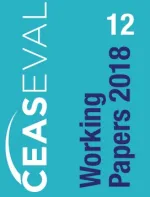Patterns of politicisation on refugees and policy responses: The case of Germany

CEASEVAL Working papers No.12
Since the arrival of large numbers of asylum seekers during the year 2015, the question of how to deal with asylum seeking immigrants in political but also in practical terms has become one of the most crucial policy issues on all governance levels throughout Europe. The politicization of the topic led to policy changes and electoral success of nationalist parties throughout Europe. This country report examines politicization patterns in Germany, focusing on the question of responsibility sharing in the field of asylum and refugee migration between 2015 and 2017. Looking at two episodes of contention (May-November 2015 and September-December 2017), we analyze the development of public opinion, parliamentary debates and media discourses. Our results show that the question of responsibility was not prominent in the discourses, while migration and related issues developed high salience and manifold and changing connotations.
While in 2015, many discourses dealt with human tragedies in the context of flight and the necessity to act up and show solidarity via humanitarian engagement, migration in 2017 was often connoted with “strangeness” and “security threat”, and had triggered debates on deservingness of individuals regarding their causes of flight, and limits of solidarity in terms of immigration numbers and integration efforts. Two major discourse lines – the integrative and the preventive discourse – developed from those processes and directly relate to competing policy approaches regarding strategies of the EU to face the reception of asylum seekers.
Keywords: politicisation, refugees, Germany, migration, asylum responsibility sharing